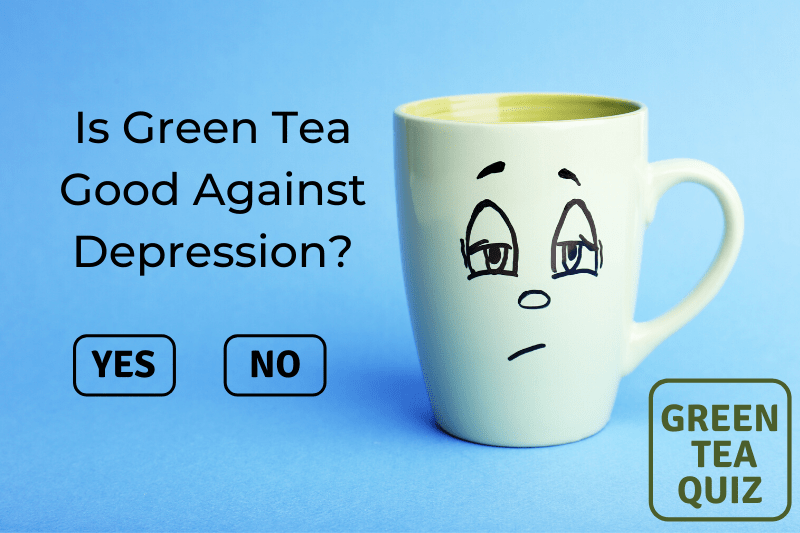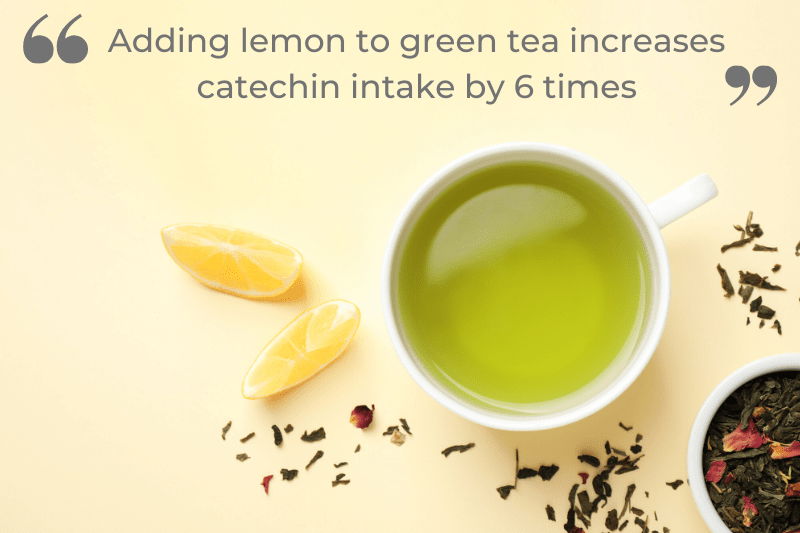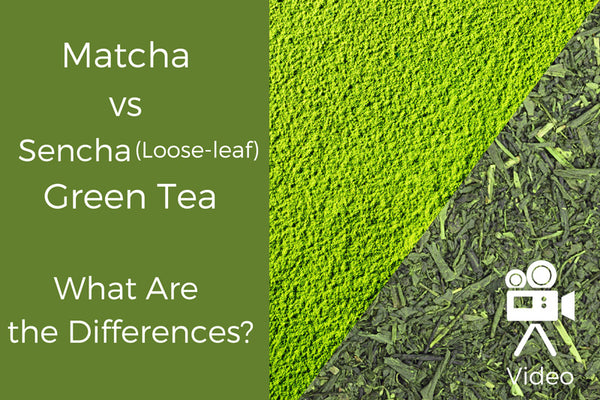Is Green Tea Good Against Depression?

Depression is incredibly common, yet it is a serious condition that can affect all aspects of your life, including your mental, physical, and emotional health.
There are, however, a number of different strategies for overcoming or managing depression, including lifestyle changes or medication. For those suffering from depression, increasing the intake of vitamin-rich foods can also be beneficial. Foods rich in antioxidants, such as green tea, can play an important role in improving your condition and helping you lead a healthier and better life.
On that note, let's talk more about green tea vs. depression and how it can help.
Green Tea, Antioxidants & Depression
Green tea is rich in antioxidants that strengthen the immune system and help fight diseases. It can also help reduce cell damage from free radicals. Interestingly, this tea is among the most researched teas in existence.
Green tea has a unique amino acid called L-Theanine. Researchers have found it to be the key player in helping fight depression:
- L-Theanine has a natural calming or soothing effect
- It also slows down caffeine absorption
- Research studies have also indicated natural anti-anxiety properties
- Studies show green tea has a direct influence on the nervous system, inducing promoting calmness
It's capable of inhibiting a-amylase activity, an activity that has been associated with stress.
Feeling depressed? Consider Trading Your Coffee for Green Tea.
If you think your morning cup of coffee is giving you a great start to a day, you should consider switching to premium green tea for greater and healthier reasons. A research study covered by the American Journal of Clinical Nutrition found that regularly drinking this tea can reduce the symptoms of depression in older adults.
Some of the findings related to the study are as follows:
- The participants' average age was 76 years
- Those who took higher levels of green tea showed the tendency to be nonsmokers and highly socially active
- The difference in impact on mild and severe depressive symptoms was significant between those taking less than one cup and four or more cups of green tea with lemon per day
- Taking high amounts of green tea reduced reliance on antidepressants or the risk of depression
- The antidepressant benefits of premium green tea were the same for both genders
- The same level of association could not be found when green tea was replaced with other forms of tea and coffee
New studies have concluded that the benefits eventually trickle down to the presence of L-Theanine. It has further been found to help fight off stress and anxiety in people suffering from these conditions. Stress, anxiety, and feelings of depression commonly occur in older adults.
However, the symptoms are now also common among younger adults due to changing lifestyles.
Green Tea & Korean Survey
There is also a Korean Survey involving over 9,500 subjects that reports the antidepressant benefits of drinking green tea. This study used the Korean National Health and Nutrition Examination Survey as the data source.
The subjects included men and women of age 19 years and older. Those who took more than three cups of tea experienced 21% lower levels of depression. The findings were dramatic even when the amount of tea taken was far less compared to the dose given in the study published in the American Journal of Clinical Nutrition.
Improvement in Depression & Learning Abilities
There is another noteworthy 2013 study published in the American Botanical Council that demonstrates the benefits of drinking green tea for fighting depression. This study also showed how consuming green tea also improved the subject's learning abilities. The focus of this study was to see if the tea helped in restoring the Reward System in the brain and curing anhedonia.
Anhedonia is the root cause of the issue. Depression causes an inability of the patient to experience pleasure. This has been connected to the dysfunction of the Reward System. Some of the interesting findings of this study were as follows:
- One set of participants was given green tea three times daily for five weeks
- Another set was given a placebo, a cellulose
- The subjects had to play a game that offered a small financial reward
- The green tea group showed a dramatic increase in reward learning
The researchers concluded that drinking the tea helped repair the Reward System and cured depression and anhedonia.
Adding lemon to green tea can help with anxiety

While green tea is an 'elixir' in itself, when taken with lemon, the health benefits become even more profound.
Drinking green tea with lemon helps in bringing out more of the antioxidants present in the tea. This was published in the November 2014 edition of the Journal of Food Processing and Technology. The lemon also makes the antioxidants readily absorbable for your body. The citrus juice works by increasing the extraction of catechins present in green tea.
In fact, the increase is by up to six times compared to drinking tea without lemon. According to one study, an increased presence of catechins in the body has been found to decrease both depression and anxiety.
(Learn more about catechins here)
Studies involving oil extracted from a lemon show that it has powerful antidepressant properties. So, when you drink green tea with lemon, the combination of the two elements significantly increases the benefits against depression. Lemon works by modulating the levels of various hormones in the body. Most notably, serotonin, dopamine, and norepinephrine.
Research Study Findings
There are many studies showing the benefits of inhaling the oil on depression. Then, there are a few sets of studies that have shown its benefits when taken orally as well.
One such study involved animal subjects using the Tail Suspension Test (TST). Researchers studied the effect of the oil on monoamines present in the brain. The study found the subjects who received the lemon extracted oil showed a significant increase in the concentration of serotonin, dopamine, and norepinephrine in the following parts of the brain:
- Striatum
- Prefrontal cortex
- Hippocampus
These findings have been associated with the antidepressant benefits of lemon. Thus, drinking premium green tea along with lemon can further enhance the antidepressant benefits of the beverage.
Thus, there are clear scientific reasons for drinking green tea with lemon to achieve optimal antidepressant benefits. Drinking the beverage regularly can bring about significant improvements in your health and life.
If you find that you are still struggling with depression, consider reaching out to a licensed mental health professional at BetterHelp.
Did you learn a lot from this post about green tea vs. depression?
Here are three more posts to read next:
- DOES ROASTING GREEN TEA (HOJICHA) MAKE IT LESS HEALTHY?
- IS IT OKAY TO DRINK GREEN TEA ON AN EMPTY STOMACH?
- IS GREEN TEA BAD FOR THE LIVER? - GREEN TEA QUIZ
This post about green tea vs. depression was first published in 2020. It was updated in 2022 just for you.
Related Articles You May Be Interested
Also in Japanese Green Tea Lovers in India

TYPES OF TEA: MATCHA VS SENCHA GREEN TEA: WHAT ARE THE DIFFERENCES?
When it comes to different types of tea, matcha and sencha green tea are two many people have questions about! Get answers in this post.

What is the best way to store your matcha & Japanese green tea?
5 Essential Storage Rules for Matcha and Japanese Green Tea
Read on to learn how to store matcha the proper way to ensure that you get the most out of this ancient elixir.

Japanese Green Tea Co. Acquires ShizuokaTea.com, KagoshimaTea.com & Green Tea Merchant
In 2020, Japanese Green Tea Co. officially acquired ShizuokaTea.com, KagoshimaTea.com, and Green Team Merchant.
Green Tea Merchant, who has been operating ShizuokaTea.com, KagoshimaTea.com, has been the pioneer of online Japanese tea sales ran by Kent Rhoads since 2000.

































